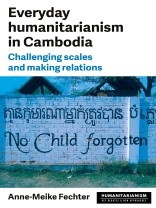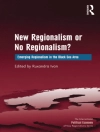Faced with the scale of global challenges such as poverty and inequality, one question is where to start. Humanitarian efforts can only ever have limited reach. Among all of human suffering, whom should we support? And what shapes our choices? Such questions are at the core of this book. Through an ethnographic account of moralities, it traces how everyday humanitarian practitioners challenge entrenched values of what matters, upending the notion that the large-scale is inherently important, and even questioning what ‘large’ means in the first place. Instead, these practitioners typically aim to create a difference in the life of a particular person, situating their limited actions within pervasive poverty.
İçerik tablosu
Introduction
1 Making scales and relations
2 The part and the whole
3 Every person counts
4 Distance and proximity
5 Desire to connect
6 Humanitarian kinship
7 Affinities and shared biographies
Conclusion
Index
Yazar hakkında
Anne-Meike Fechter is Professor of Anthropology and International Development at the University of Sussex












